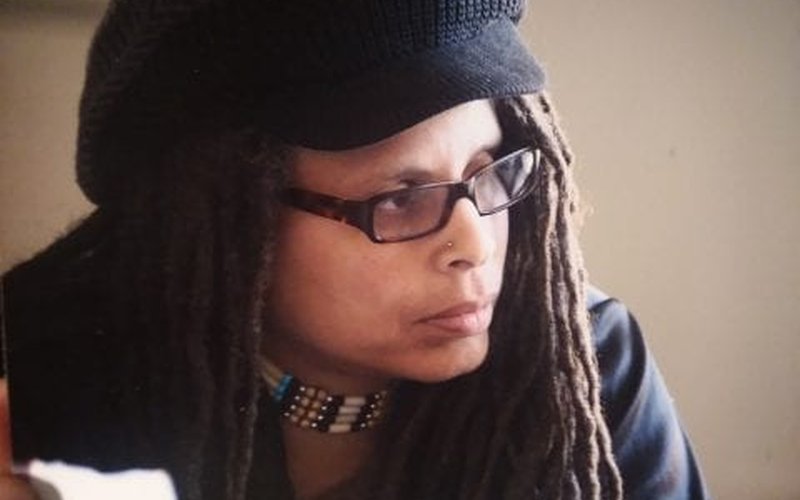
KEXP's Sound & Vision airs every Saturday morning from 7-9 AM PT, featuring interviews, artistry, commentary, insight, and conversation to that tell broader stories through music, and illustrate why music and art matter. You can also hear more stories in the new Sound & Vision Podcast. New episodes are out every Tuesday and Thursday. Subscribe now.
Jourdan Imani Keith’s life as a poet began as a kid, while she was at camp, being swarmed by bugs on top of a mountain in Maine.
“What I did was close my eyes just to escape the moment because the counselor had told me not to bother her. So, I quieted myself. And when I opened my eyes up bird flew by at eye level. And just in that moment, everything changed. I was stunned at seeing that happen,” says Imani Keith. She thought about depriving her other sense. She covered her ears and smelled new smells. “I actually experienced a natural high.”
After that, she went to her diary and wrote her first poem.
“And it was a poem about the clouds and God crying and it was really bad. It was really bad poem, which I promptly showed to my counselor, who was kind, but that that was the first time that I wrote a poem that wasn't an assignment,” she says.
Today, Jourdan Imani Keith is the Seattle Civic Poet and her work explores the intersection of the natural world and identity. She was the Seattle Public Libraries first naturalist in resident and founded the environmental justice organization, the Urban Wilderness Project.
She spoke with Sound & Vision host Emily Fox about he work with that organization and seeing the world throught the lens of a naturalist and poet.
The poet and playwright spoke with host Emily Fox about his work as a part of Sound & Vision’s series on poetry.
Sound & Vision’s Emily Fox talks with Pai about Enso and delves into some of the particular stories she relates in the book. From the legacy of Seattle cabaret and musical theater singer Pat Suzuki as well as her own experiences with racism and micro-aggressions. Pai also reads a recent work sh…
Local poet and Seattle Central University student discusses the universality of music, celebrating black identity, and importance of taking time to heal during Black History Month.